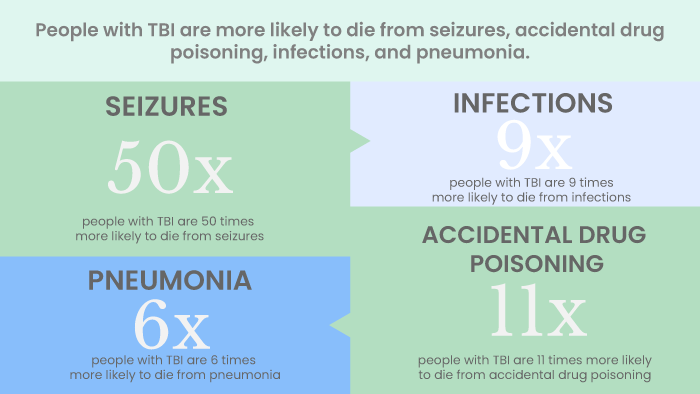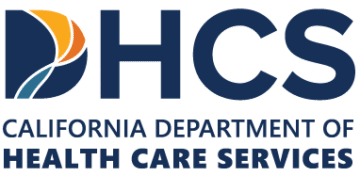


Have you or a loved one suffered a traumatic brain injury? Maybe you recently were in a high-impact accident or collision?
Perhaps you or someone you know has lingering effects from a head injury or injuries suffered a long time ago?
According to the CDC’s most recent statistics (Center For Disease Control), there are close to 3 million emergency department visits, hospitalizations, and deaths per year.
The term traumatic brain injuries or TBI may be new to you, or it may not.
Either way, if you have any interest in learning about the causes, effects, symptoms, and how much more prevalent this type of injury is, then we have all the data. Keep reading to learn about what’s often a life-changing injury.
Assuming some of you may be hearing the term TBI for the first time, let’s go over precisely what it is.
TBI, or intracranial injury, is a form of brain injury that you can acquire in several ways. When an object hits the skull bluntly or acutely, you’ll develop a TBI. You can suffer TBI when your head violently or suddenly hits something. You can also suffer TBI if an object pierces your skull and or brain tissue.
TBI symptoms can be anywhere from mild, moderate or severe. The extent of your symptoms will depend on the force and the severity of the impact.
Symptoms are also affected by the amount of damage that’s done to your brain.
There are many ways you can suffer from TBI. Lifestyle is certainly one of them and at the top of the list.
Your lifestyle can be a positive and negative influence on the quality of your life. Sometimes you could be doing something that’s, in essence, good for you, but it could turn into a negative result.
In most cases, living an active lifestyle is great for your body and your mind. But, in some instances, the same active lifestyle can turn into a physical problem and or TBI.
For instance, you could be hiking and have an accident. Suffering a fall from a high distance can result in TBI or worse.
The same thing is true if you’re involved in a bicycle or mountain bike crash. Whether you’re hit by someone driving a vehicle, or you’re riding on an intense trail, TBI can happen in an instant.
Other lifestyles lend themselves to a higher risk of TBI, lifestyles such as snowboarding, skiing, and driving a motorcycle.
Twenty-eight percent of the nearly 2 million head injuries in the US each year occur with people who drive a motorcycle.
The annual cost of TBI’s in the US is more than $48 billion. Motorcyclists make up for $13 million of that cost. A severe head injury can cost you up to $4 million in your lifetime.
For the most part, these lifestyle choices among others can be a great thing for your mind and body, but there are some occasions where things get blurred.
Your profession can make a huge impact on whether you incur traumatic brain injuries or not. After motorcycle-related injuries, athletes are most likely to suffer from TBI. That’s even more true with those who play high-impact or high-collision sports.
However, there’s another side to it, a dark side. Whether players were happy to do it or not, that dark side is TBI.
Former pro hockey player and enforcer Rob Frid says this about the possible impact of hockey and TBI, “Traumatic Brain Injuries are the #1 reason for disability in Canada & the US.”
“Many of us former athletes who are suffering through the long-term effects of multiple concussions, which includes multiple TBI’s, in high-impact sports like myself from hockey also deal with chronic pain.”
Frid says there’s a lack of a support system from former teams and leagues he’s played in.
He says it “ultimately sends many former players down a very dark path without proper diagnosis and ultimately proper treatment.”
“We have constantly seen these struggles over the years hit the media with early death from suicide and or self-medicating leading to addiction and what I believe now…a fast track to degenerative brain disease.”
Frid says, “It’s leading to this Monster we call CTE – Chronic Traumatic Encephalopathy.”
“Hockey and all high impact sports need a culture change…especially engaging in more education and creating support platforms for those of us who struggle today.”
If you choose to or are lucky enough to play professional hockey, football, rugby, and others, you’re at a significantly higher risk of all types of traumatic brain injury.
Players in those leagues are big, strong, and move at very high speeds. They play with a reckless abandon of their bodies and have little concern for their own safety and, often, others.
Most of them, if asked, would say they do it happily, and many who are retired would say they’d do it again in a heartbeat. You’ll hear them say they know or knew what they signed up for and consider themselves lucky.
You can live a lifestyle free of risk, not work in a profession that puts you at risk of TBI and still find yourself dealing with it.
You’re far less likely to acquire TBI if you’re in this category, but it’s possible. You could be driving your car to work at your desk job, and boom.
You could be playing with your kids on the playground and have a clumsy fall that hits in just the right spot. You could happen to be in a place where an explosion or blast occurs. These scenarios are unlikely but they do happen.
In a category of their own is military personnel. Sure, it’s their profession, but it goes beyond that.
Police officers, firemen and women, deal with certain physical impediments that can cause mental trauma and physical brain trauma.
Military personnel deal with a higher level of trauma which in many cases leads to long-term TBI.
Chris Riga, a former Army Ranger who served in Afghanistan from 2001-2014, said, “We were always either preparing for combat or deployed in combat. Blasts and exposures were a daily incident.”
Riga also said he’s struggled to maintain his balance when standing for any lengthy period of time.
Many soldiers suffer symptoms from blast exposure. Some get concussions from the blasts and some don’t. But, researchers have found that you don’t need to suffer a concussion to have TBI from the blasts.
They also found that blast exposure is associated with a loss or impairment of memory. TBI patterns they find with bombs or explosive blasts are seldom seen in any other patient dealing with traumatic brain injuries.
Research suggests that 50% of all combat injuries come from some form of explosion. Eighty percent of the civilian population who suffers from TBI have mild symptoms.
On the other hand, soldiers tend to have more substantial forms of TBI, and they experience more prolonged bouts with post-concussion syndrome and PTSD.
PTSD and TBI almost go hand in hand. Research shows that 60-68% of all soldiers who’ve suffered injuries from a blast may need traumatic brain injury treatment.
The same research shows that it’s harder to diagnose and adequately treat military veterans. PTSD related to TBI can also cause bipolar disorder.
Non-athletes need to be singled out to an extent. That’s because a lot of the time, friends and family members dismiss people that aren’t athletes or military personnel when they mention TBI symptoms.
When family and friends do listen, they often don’t understand what it’s like to have a significant injury and aren’t able to give support.
A lot of the time, non-athletes don’t seek help for traumatic brain injuries since it’s not a common occurrence. Plus, they might not have adequate insurance to cover the costs of rehab.
Another thing non-athletes and loved ones of non-athletes need to keep in mind when dealing with TBI, is that often there’s not a great motivation to return to prior function.
There’s also a fear of returning to work if they were injured while on the job.
Unfortunately, the answer to the question, ‘what are the long-term effects of a traumatic brain injury’ is that TBI can be a lifelong condition.
According to the CDC, moderate to severe traumatic brain injuries can lead to a lifetime of physical, cognitive, emotional, and behavioral changes.
Not only are these symptoms frustrating for patients in the short run, but these symptoms also tend to linger and affect your normal daily routine.
Often, the frustration that builds up can be just as debilitating as the injury itself.
Half of the people that suffer from TBI experience further decline or end up dying within five years of their injury, while 26% improve.
These health consequences can be treated or reduced with chronic disease management, but that may not always be very effective.
It goes on a person-to-person basis and whether you follow the correct rehab and pain management routines regularly or not. Only 10% of patients will need inpatient rehabilitation so doing things on your own is essential.
For those who suffer moderate or severe traumatic brain injuries, life expectancy is nine years shorter than those who suffer mild TBI or have not had TBI.

Those with moderate to severe TBI incur financial costs and burdens that affect not only them but also their families. Society even takes on the brunt of the load as well.
For TBI patients that are still alive five years after their initial injury, 57% are moderately or severely disabled. Fifty-five percent are unemployed but were employed at the time of their injury.
Fifty percent make a return visit to the hospital, 33% rely on other people to help with everyday activities, and 29% aren’t satisfied with their quality of life.
Also, 29% abuse alcohol or use illicit drugs and live in nursing homes or other kinds of institutions.
Some groups are more likely to die sooner than others. These groups include; men, older adults, people who are unemployed, and people with less education.
It also includes people who aren’t married, have a more severe TBI case, and people who suffered fall-induced TBI.
Long-term symptoms can range from headaches to dizziness to seizures. These symptoms can last decades. Below we’ll go over them in detail.
Daily, frequent migraines are prevalent shortly after TBI. They can also increase over time. If headaches or migraines are happening six months after the injury, it’s likely they’ll last for a year or more.
Studies have shown that 93% of people who make what’s considered a full recovery from TBI still experience headaches.
A third of people with moderate to severe TBI experience dizziness or lightheadedness five years after they’re injured.
Light and noise sensitivity tend to be new symptoms of TBI within three years of the injury. Twenty-five percent of TBI patients are sensitive to light and noise twelve months after their TBI.
Some TBI patients have problems focusing on objects close to them. This tends to happen within three years of injury. They can also have double vision.
Fatigue tends to be a problem in more severe cases. It can be physical or mental fatigue. One of the difficulties fatigue creates is irritability, emotional problems, and insomnia.
The most severely injured TBI patients may deal with seizures and post-traumatic epilepsy. About 40% of patients can have late-stage seizures.
Cognitive and emotional problems can be just as bad or worse than physical issues due to TBI. They can often develop and last longer than any physical discomfort.
Impaired memory and thoughts are the most prevalent cognitive problem brought on by TBI. Research shows that anywhere from 20-63% of TBI patients deal with impaired thoughts and memory.
You can even see a general improvement in mental functioning but still, have some lingering effects.
Aside from impaired thoughts and memory, TBI patients can have difficulty sleeping, depression and anxiety, and not managing things and getting stuff done.
Some other cognitive symptoms are anxiety and depression, personality changes like aggression, and concentration and attention deficits.
It’s important to note that most of these symptoms occur well after the initial injury. In most cases, they’re brought on by lingering physical pain and the frustrations that come from it.
That’s why treating physical problems right away and diligently is imperative in maintaining long-term mental health after TBI.
There are many times when traumatic brain injuries can’t be prevented. But, there are things you can do to help prevent or eliminate the risk of TBI.
You should always use a proper booster or child safety seat for children. You should always wear your seatbelt in a vehicle. Always wear a helmet on a motorcycle, snowmobile, or scooter.
Wear a helmet when horseback riding or playing contact sports. That includes skiing, snowboarding, and skateboarding.
Use railings on stairways and understand fall prevention methods. Ensure you have adequate lighting in your hallways and stairwells at home, especially if you have poor night vision.
Keep objects out of places you walk, and don’t sit on unbalanced chairs or stools.
Take extra care when crossing a city street. Check all signals and have your head on a swivel. Always defer to a motor vehicle until you’re certain it’s safe to cross.
The recovery process can vary after your initial TBI. It varies on being mild, moderate, or severe. Your personal physical make-up will come into play as well, and to an extent, luck.
There is not one blueprint to this process either. Some patients may need to go through all steps of recovery, and some may skip or overlap some of the steps.
Physicians will initially determine what level your TBI is and then map out a recovery plan. During that plan, you’ll be monitored for progress or regression and then proceed as needed.
It’s better to tailor the care and treatment of TBI patients. The most basic treatments are individual counseling, cognitive behavioral therapy, and dialectical behavioral therapy.
Some other treatments range from family therapy, medication therapy, and equine therapy.
More treatments include yoga, group counseling, and experiential therapy. Most of the treatment options listed above are pretty straightforward. Let’s detail the special care that needs more explanation and understanding.
Equine Therapy is a take on animal therapy. Certain horse activities are used to promote emotional, physical, and occupational growth.
It helps build communication, trust, social skills, and impulse control. While also building self-efficiency and self-confidence.
Believe it or not, horses have a similar behavioral pattern as humans; therefore, they can help with these essential daily skills.
Building a connection with the horses is made easy because of these similarities, which helps to make this treatment successful.
Experiential therapy helps patients with expressions and with keeping their emotions in check. It can also help with depression and understanding how emotions influence behavior.
There are several different types of experimental therapy. Such as cognitive behavioral therapy, Gestalt therapy, and dynamic therapy.
More alternative types of experiential therapy include, art and music therapy, and psychodrama, among others.
These therapies help you to reflect on events, process things emotionally, and then interact with others. It also helps with peoples’ interpretations of the world.
Some expressive therapies that might be used are drama therapy, like role playing or adventure therapy.
There are some things you need to keep in mind. Your physician or caregiver may forget to remind you about ways you can slow down your recovery from TBI.
When your brain is at its max, bad situations become worse. If your brain is injured, it can’t take on as much stimulation as an otherwise healthy brain can.
When you’re feeling overwhelmed, let your brain rest. That means no phone and no social media.
Balance is essential, as mentioned above. But to take it a step further, you’ll need to watch yourself when back at work or in a social situation.
Don’t take on too much work or agree to prolonged social settings until you’re more than ready.
While we’re on the subject of balance, don’t forget how important sleep is to your recovery. Many TBI patients sleep 12-16 hours a day at the beginning of their recovery process.
Traumatic brain injuries are tricky. They can take on several symptoms while having different levels of pain, treatment, and recovery. TBI not only affects the victim’s life but those around them.
If you take the right steps, have a good support team around you, and maintain a positive outlook, you can mitigate problems and speed your recovery process. Leave us a message to contact us for more help.
TBI-related Emergency Department Visits, Hospitalizations, and Deaths (EDHDs). (2019, March 29). Retrieved from https://www.cdc.gov/traumaticbraininjury/data/tbi-edhd.html
Traumatic Brain Injury Information Page. (n.d.). Retrieved from https://www.ninds.nih.gov/Disorders/All-Disorders/Traumatic-Brain-Injury-Information-Page
Pearl. (2017, February 17). Brain Injuries due to Motorcycle Accidents. Retrieved from https://chicagoinjurycenter.com/motorcycle-accident-brain-injuries
Athletes and TBI: Sports-Related Traumatic Brain Injury (TBI) (n.d.). Retrieved from https://braininjuryeducation.org/Populations/Athletes/
L. R. (2021, March 16). Russian hockey player Timur Faizutdinov dies at 19 after being hit in the head by a puck. Retrieved from https://www.msn.com/en-us/sports/nhl/russian-hockey-player-timur-faizutdinov-dies-at-19-after-being-hit-in-the-head-by-a-puck/ar-BB1eE0QY
Suicide Prevention: D’Amore. (2020 November 21). https://damorementalhealth.com/orange-county-mental-health-treatment/suicide-prevention/
Thys, F. (2019, March 11). ‘What Does War Do To An Entire Person?’ – VA Studies Veterans With Blast Injuries. Retrieved from https://www.npr.org/2019/03/11/702196238/what-does-war-do-to-an-entire-person-va-studies-veterans-with-blast-injuries
Trotter, B. B., Robinson, M. E., Milberg, W. P., McGlinchey, R. E., & Salat, D. H. (2015). Military blast exposure, ageing and white matter integrity. Brain : a journal of neurology, 138(Pt 8), 2278–2292. https://doi.org/10.1093/brain/awv139
Traumatic Brain Injury and PTSD: Focus on Veterans (2018, September 02). U.S. Department of Veterans Retrieved from https://www.ptsd.va.gov/professional/treat/cooccurring/tbi_ptsd_vets.asp
PTSD and Trauma Treatment in Orange County: D’Amore. (2020, October 15). Retrieved from https://damorementalhealth.com/orange-county-mental-health-treatment/trauma-ptsd/
Tony, Kristy PT, DT. (2018 April 10) TBI and the Non-Athlete Population. https://braininjurymn.org/annual_conference/CONF-2018-presentations/Fri-I-D.pdf
CDC. Moderate to Severe Traumatic Brain Injury is a Lifelong Condition. https://www.cdc.gov/traumaticbraininjury/pdf/moderate_to_severe_tbi_lifelong-a.pdf
Bullock, G. (n.d.). (2019 March 18) Long Term Effects of Moderate or Severe Traumatic Brain Injuries (TBI). Retrieved from https://www.theraspecs.com/blog/long-term-effects-of-moderate-severe-traumatic-brain-injuries-tbi/
TBI Treatment in Orange County, CA: D’Amore. (2020, October 09). Retrieved from https://damorementalhealth.com/traumatic-brain-injury-treatment/
Equine Therapy for Mental Health. (2020, October 16). Retrieved from https://damorementalhealth.com/equine-therapy/
Experiential Therapy. (2020, December 07). Retrieved from https://damorementalhealth.com/experiential-therapy/




















